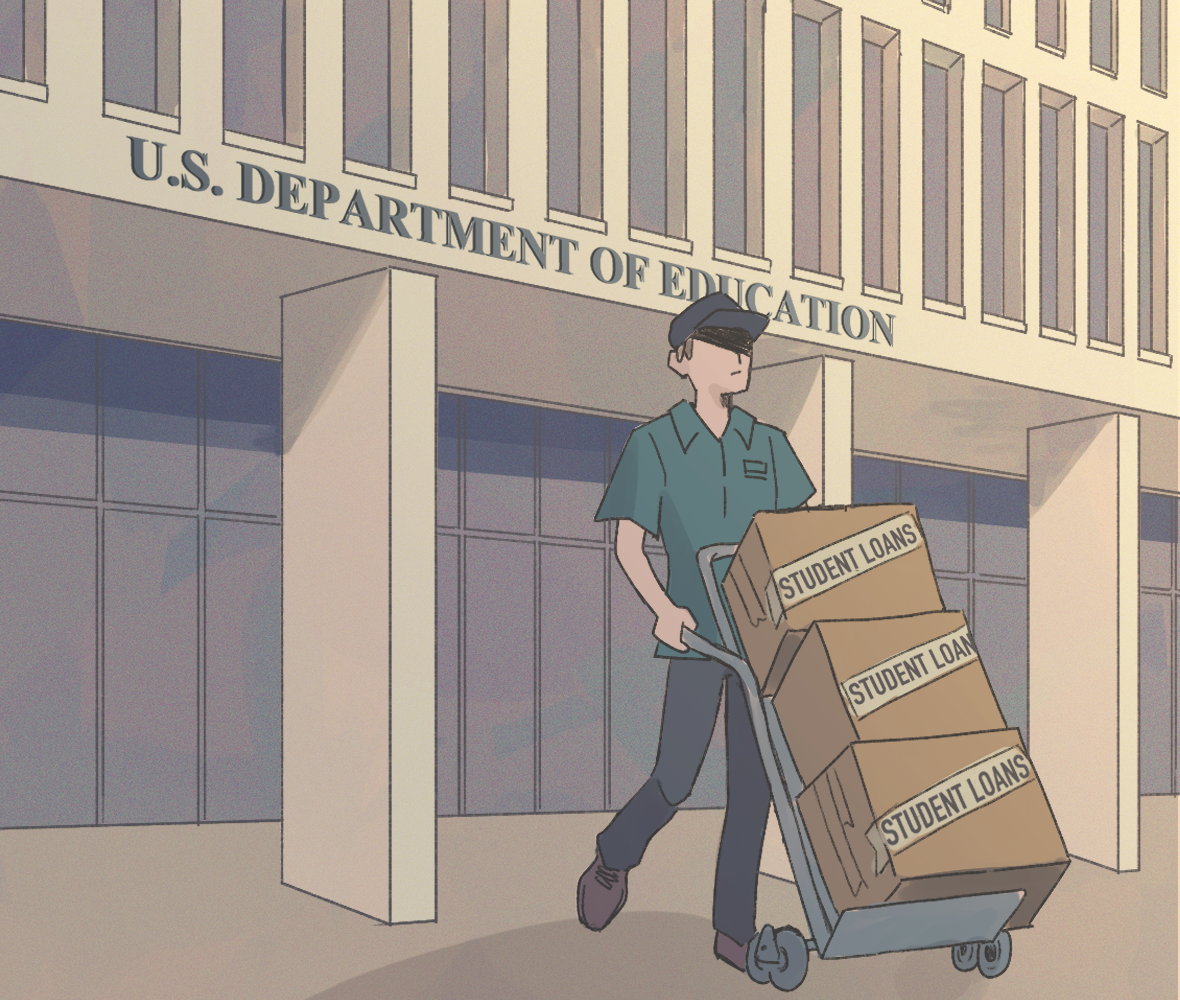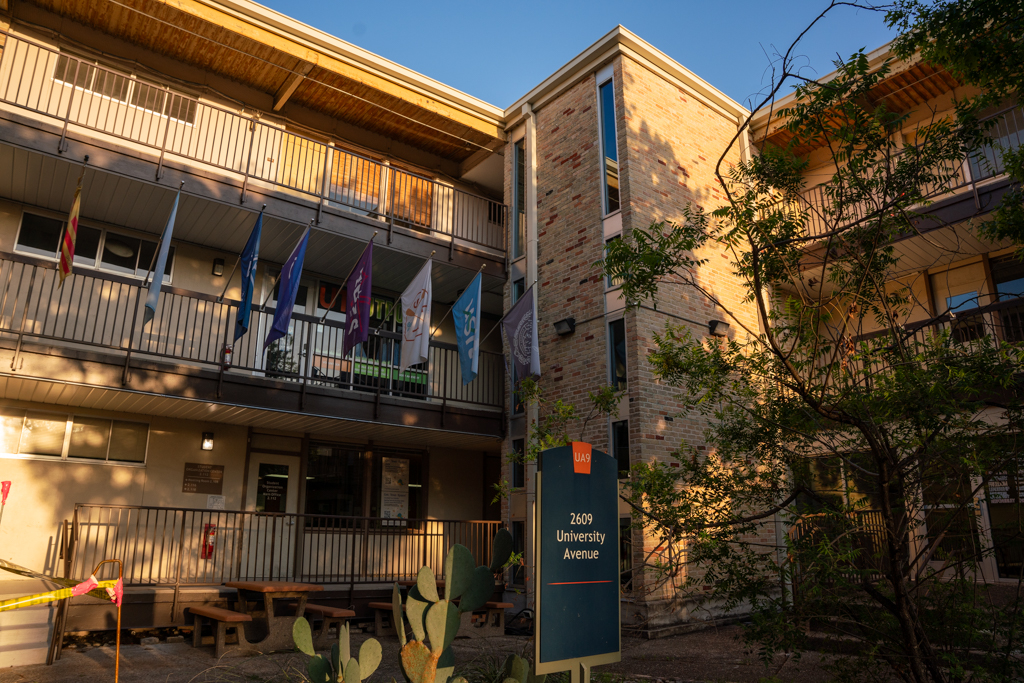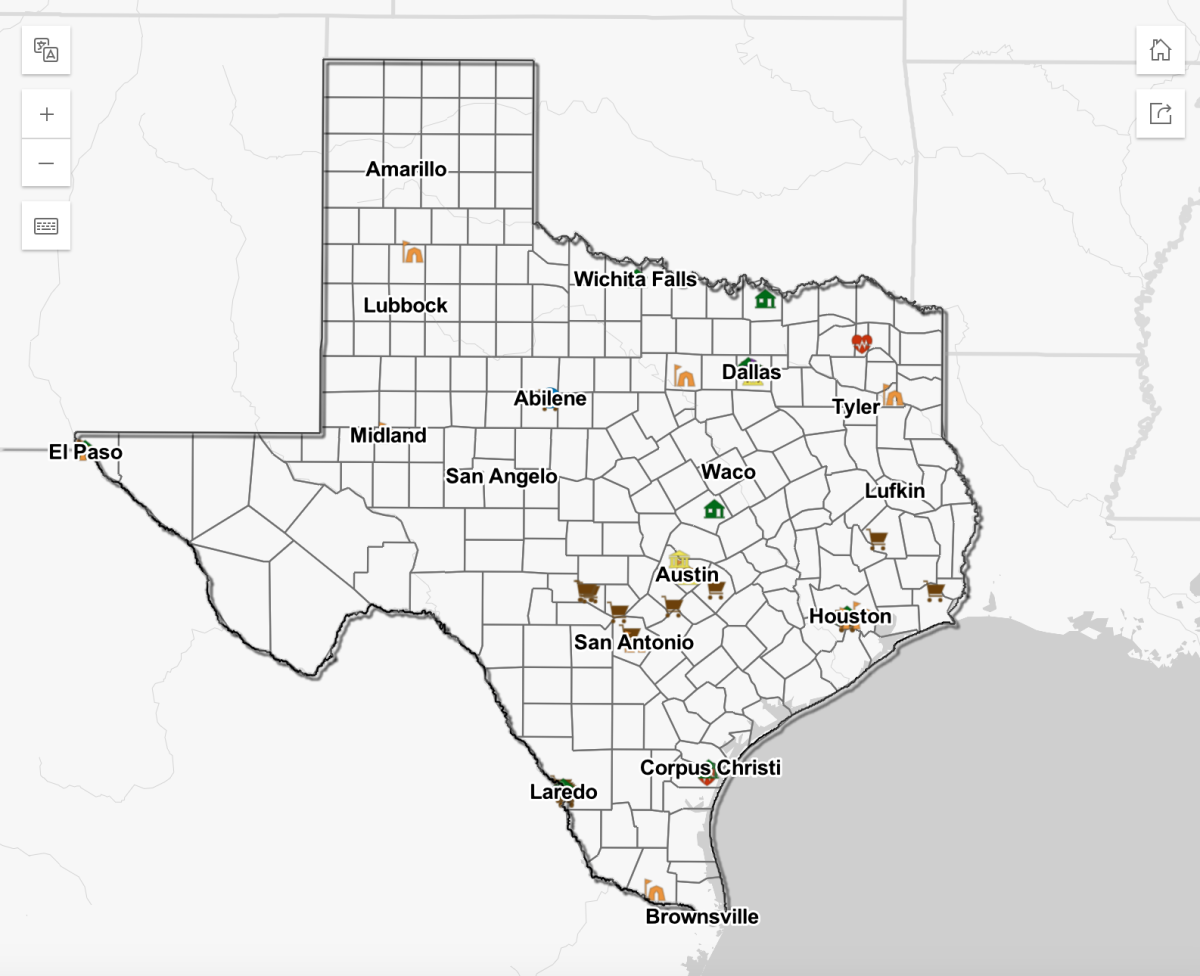After seeing a tweet calling for UCLA students to apply to become an English as a Second Language tutor for university employees, economics sophomore Madelin Chavez became inspired to start a similar program at UT.
Project SPELL, or Students for Progress in Employee Language Learning, is a new program at UCLA that pairs student volunteers fluent in English and Spanish with custodial, maintenance and food service employees not fluent in English to teach them English as a second language one-on-one.
Chavez tweeted last week that she wanted to start the program at UT and received more than 100 responses from interested students. Chavez said she has collected the information of the students who replied and plans to meet with the UCLA program coordinator later this month for help starting the program.
“I grew up with two parents who immigrated here from Salvador,” Chavez said. “My dad started his own company, so he was in the workforce and had to learn English. My mom was a stay-at-home mom, so she had to go to the English classes that were offered by the community. I saw how intimidating it was to be in that group setting and not know English.”
Chavez said she is working with the Liberal Arts Council and several Latinx organizations interested in starting the program at UT. She said the UCLA chapter works through the school’s volunteer center, so she reached out to the Longhorn Center for Community Engagement to find the best way to establish the program.
The Longhorn Center for Community Engagement did not immediately respond to the Texan’s request for comment.
Larrimie Gordon, the employee engagement program coordinator for Facilities Services, estimated about 60% of Facilities Services night custodial staff do not speak English as their first language. Gordon said SPELL would be beneficial, but figuring out logistics would be difficult.
“If there was a program like this, (custodial staff) work from 5:30 at night until 2 in the morning,” Gordon said. “It’s also difficult to get time with them outside the normal work hours because a lot of them do have families and second jobs.”
Gordon said many employees also speak French, Vietnamese, Chinese and other languages besides Spanish.
“If we could figure out the logistics part of it, it’d be very beneficial because I have a hard time communicating with folks and letting them know resources that are available to them,” Gordon said. “Google Translate can only do so much, especially if you’re talking about more technical stuff, like paid leave and the Employee Assistance Program.”
Ivy Hester, speech language pathology junior, said she wants to be a tutor for the program because growing up, she learned Spanish through her hometown friends, many of whom did not speak English.
“I’ve always wanted to do something where I was helping people,” Hester said. “Communication and being able to stay in this country are such essential things. If there’s something I can do to make that secure for someone,
why not?”





















